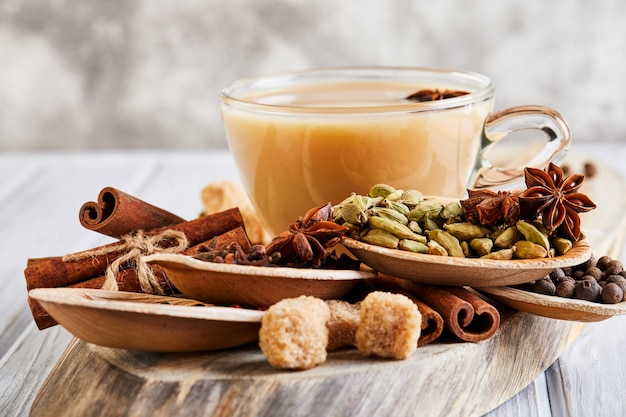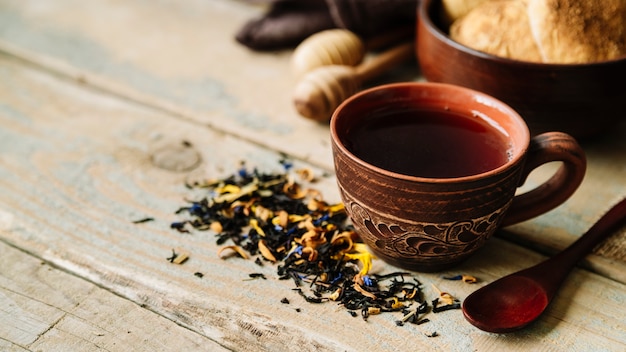Ask Ayurvedic doctor a question and get a consultation online on the problem of your concern in a free or paid mode. More than 2,000 experienced doctors work and wait for your questions on our site and help users to solve their health problems every day.
Kamdhenu Ras: A Scientific Look at Ayurvedic Healing

Introduction
Kamdhenu Ras has attracted growing interest among health enthusiasts, herbal medicine practitioners, and researchers in recent years. Believed to have its roots in Ayurveda—India’s ancient healing tradition—Kamdhenu Ras is often cited for its potential ability to support immunity, aid digestion, and promote overall wellness. However, despite its historical prominence, consumers and healthcare professionals alike require a scientifically oriented approach to understand both its promise and limitations.
In this article, we will dissect Kamdhenu Ras from various angles—its composition, suggested benefits, existing scientific research, potential side effects, and best practices for safe consumption. Along the way, we will reference academic journals, authoritative medical sources, and current peer-reviewed studies to provide a balanced, evidence-based perspective. Whether you are a healthcare provider considering how Kamdhenu Ras fits into your clinical guidelines, or a curious individual exploring Ayurvedic remedies, this guide will help illuminate the most important aspects of Kamdhenu Ras.
Don't wait or self medicate. Start chat with Doctor NOW
Table of Contents
- What Is Kamdhenu Ras?
- Historical and Ayurvedic Context
- Potential Health Benefits
- Scientific Evidence and Clinical Studies
- Standard Dosage and Administration
- Possible Side Effects and Contraindications
- Disclaimer and Medical Caution
- Frequently Asked Questions (FAQ)
- Conclusion and Call to Action
What Is Kamdhenu Ras?
Kamdhenu Ras is traditionally described in Ayurvedic texts as a potent formulation composed of various herbal extracts, minerals, and sometimes animal-derived substances. These constituents are believed to synergize, enhancing the body’s physiological functions. While many ancient remedies in Ayurveda rely on single herbs, Kamdhenu Ras stands out as a composite remedy that draws upon multiple ingredients to potentially deliver broader therapeutic effects.
In modern contexts, Kamdhenu Ras is typically consumed as an oral supplement—found in powder, tablet, or capsule form. Although manufacturers may vary in their specific ingredient combinations, it generally includes herbs well-known in Ayurveda such as Ashwagandha (Withania somnifera), Tulsi (Ocimum sanctum), Shankh Bhasma, and various other mineral-rich materials.
Historical and Ayurvedic Context
Ayurvedic medicine has been practiced in the Indian subcontinent for over 5,000 years. Texts like the Charaka Samhitaand Sushruta Samhita outline principles that range from dietary choices to complex polyherbal formulations, often called Rasa Shastra preparations.
- Rasa Shastra: This branch of Ayurveda focuses on the preparation of specialized formulas containing herbs, minerals, and metals. Kamdhenu Ras is considered part of this tradition.
- Holistic Approach: Ayurveda seeks to treat the human body as an integrated system, emphasizing the balance of three fundamental energies—Vata, Pitta, and Kapha.
- Individualized Treatment: Ayurvedic practice customizes treatments based on a person’s constitution (Prakriti), lifestyle, and environment.
Kamdhenu Ras aligns with these holistic views, purportedly targeting multiple organ systems simultaneously rather than addressing a single ailment in isolation.
Potential Health Benefits
Although Kamdhenu Ras is often associated with a range of health benefits, these claims require careful evaluation. Below are some commonly cited benefits, along with a brief discussion of scientific perspectives where available.
1. Immune System Support
How It May Help:
Kamdhenu Ras is frequently promoted for its immunomodulatory effects, suggesting that it may help the body combat infections and other immune-related issues.
Scientific Insight:
- Research from the journal Pharmacognosy Reviews (2018) underscores the immune-boosting potential of many herbs commonly found in Ayurvedic formulas, including Tulsi and Ashwagandha.
- The synergy of minerals (e.g., Shankh Bhasma) is also proposed to bolster immune function, although this remains under investigation.
2. Digestive Health
How It May Help:
Proponents claim that Kamdhenu Ras aids digestion, alleviating issues like indigestion, gas, and bloating. By optimizing gut function, it may support nutrient absorption.
Scientific Insight:
- A small-scale pilot study published in the Journal of Ayurveda and Integrative Medicine (2020) found that polyherbal formulations containing traditional ingredients like Trikatu (a combination of ginger, black pepper, and long pepper) could improve certain digestive markers in adults.
- While Kamdhenu Ras is not identical to Trikatu, it often contains overlapping ingredients, suggesting there could be similar effects.
3. Anti-Inflammatory Properties
How It May Help:
Chronic inflammation is implicated in many modern health conditions, from arthritis to cardiovascular diseases. Certain Ayurvedic components in Kamdhenu Ras, including Ashwagandha, are widely researched for their anti-inflammatory mechanisms.
Scientific Insight:
- A meta-analysis in Journal of Clinical Medicine (2019) highlighted the anti-inflammatory potential of Ashwagandha in reducing C-reactive protein (CRP) levels.
- Although no large-scale clinical trials exist that specifically isolate Kamdhenu Ras’s impact, the combined presence of multiple anti-inflammatory herbs and minerals is hypothesized to yield similar or complementary effects.
4. Nutritional Supplementation
How It May Help:
Some formulations of Kamdhenu Ras are fortified with minerals and trace elements, serving as a nutritional adjunct. Especially for populations with dietary deficiencies, this could potentially fill gaps in essential micronutrients.
Scientific Insight:
- A randomized controlled trial in Evidence-Based Complementary and Alternative Medicine (2021) showed that mineral-rich Ayurvedic preparations can help improve levels of iron and calcium in individuals with subclinical deficiencies.
- The extent to which Kamdhenu Ras can serve as a nutritional supplement depends on its specific formulation. Consumers should always consult the product label or a healthcare provider for clarity on nutrient composition.
Scientific Evidence and Clinical Studies
While the potential benefits of Kamdhenu Ras are promising, rigorous scientific research focusing exclusively on this specific formulation remains limited. Much of the support for Kamdhenu Ras is extrapolated from studies on its individual components (e.g., Ashwagandha, Tulsi, Shankh Bhasma).
- Peer-Reviewed Journals: Scholarly articles in publications like Journal of Ayurveda and Integrative Medicineoften examine Ayurvedic formulas containing overlapping herbs.
- Human Trials: Some small-scale clinical trials exist that study related Ras Shastra formulations, but additional, high-quality randomized controlled trials (RCTs) are necessary to draw definitive conclusions.
- Laboratory Investigations: Preclinical research (e.g., cell-based and animal studies) offers preliminary data on how components of Kamdhenu Ras may function biochemically—such as modulating inflammatory markers or influencing gut microbiota.
In short, while a foundation of credible research supports the main ingredients commonly found in Kamdhenu Ras, there remains a need for large-scale, well-controlled human trials specifically targeting this product. For now, healthcare practitioners often rely on both traditional Ayurvedic knowledge and existing studies on individual herbs or minerals to inform their usage recommendations.
Standard Dosage and Administration
Administration guidelines for Kamdhenu Ras can differ depending on a user’s age, health status, and the product’s specific formulation. Below are some general considerations, but these should not replace professional medical advice:
- Form: Tablets, capsules, or powder.
- Typical Dosage: Often cited as 1–2 tablets (250 mg to 500 mg each) twice a day, or 1–2 grams of powder daily, usually after meals.
- Duration: Ayurvedic practitioners may recommend a course lasting several weeks to months.
- Adjuncts: It may be recommended to take Kamdhenu Ras with warm water, milk, or honey to enhance absorption.
Always consult a qualified Ayurvedic practitioner or a licensed healthcare provider to tailor the dosage to your personal health needs and conditions.
Possible Side Effects and Contraindications
Although generally considered safe when used under professional guidance, Kamdhenu Ras may pose risks, especially if consumed incorrectly or by individuals with certain conditions:
- Digestive Upset: Some people report mild nausea or stomach discomfort when first introducing Kamdhenu Ras.
- Allergic Reactions: Rarely, specific herbal or mineral ingredients may trigger allergic responses.
- Heavy Metal Concerns: Rasa Shastra formulations can contain metals like lead, arsenic, or mercury if not manufactured according to stringent safety standards. Always purchase from reputable brands that adhere to Good Manufacturing Practices (GMP).
- Pregnancy and Lactation: Insufficient data exist on Kamdhenu Ras’s safety in pregnant or nursing women. Caution is advisable.
- Interactions with Medications: Individuals taking prescription drugs—particularly anticoagulants, immunosuppressants, or hormones—should consult a physician to avoid interactions.
If you experience adverse reactions, discontinue use immediately and seek medical consultation.
Disclaimer and Medical Caution
The information presented in this article is for general informational and educational purposes. It is not intended to replace professional medical advice, diagnosis, or treatment. Always consult your healthcare provider or a licensed Ayurvedic practitioner before starting any new supplement, including Kamdhenu Ras—especially if you have underlying health conditions, take prescription medications, or are pregnant/nursing. The statements in this article have not been evaluated by regulatory authorities like the Food and Drug Administration (FDA). Efficacy and safety can vary among individuals, and further research is needed to establish definitive clinical guidelines.
Frequently Asked Questions (FAQ)
1. Is Kamdhenu Ras suitable for children?
Most Ayurvedic formulations, including Kamdhenu Ras, require special caution in pediatric populations. Consult a pediatrician or qualified Ayurvedic specialist for tailored advice.
2. How quickly can I expect to see results?
Response time varies depending on factors like individual constitution, dosage, and overall lifestyle. Some users report improvements in digestion or energy within a few weeks, while others may require longer.
3. Can Kamdhenu Ras help with chronic illnesses like arthritis or diabetes?
While individual components in Kamdhenu Ras (such as Ashwagandha) have shown promise in managing inflammation and blood sugar levels, the formulation as a whole lacks robust clinical data. Always discuss with a medical professional before using it for specific chronic conditions.
4. What are reputable sources for buying Kamdhenu Ras?
Look for brands with certifications such as GMP (Good Manufacturing Practices) or those that adhere to standards set by organizations like the World Health Organization (WHO) for herbal products. Ensure third-party testing and transparency about ingredients.
5. Can Kamdhenu Ras be combined with other Ayurvedic or Western medicines?
Possible interactions exist, so it’s crucial to seek medical advice to avoid negative synergies or reduced efficacy of standard medications.
Conclusion and Call to Action
Kamdhenu Ras represents a multifaceted Ayurvedic formulation with a long history and intriguing potential for promoting overall wellness. While anecdotal reports and preliminary research support several health benefits—ranging from immune modulation to digestive support—robust clinical trials targeting Kamdhenu Ras specifically remain limited. As with any traditional remedy, discerning consumers should rely on credible sources, consult healthcare professionals, and approach usage with balanced caution.
Key Takeaways:
- Kamdhenu Ras is rooted in ancient Rasa Shastra traditions and often touted for immunity, digestion, anti-inflammatory support, and more.
- Scientific evidence primarily comes from studies on individual herbs like Ashwagandha and Tulsi, rather than large-scale research on Kamdhenu Ras itself.
- Safety hinges on responsible sourcing, professional guidance, and adherence to correct dosages.
If you found this article helpful, consider sharing it with friends or colleagues who could benefit from learning about Kamdhenu Ras. Feel free to comment below with your experiences or subscribe to our newsletter for ongoing updates about Ayurvedic and integrative medicine research. Together, we can foster a better understanding of this compelling traditional remedy and its place in modern healthcare.
Disclaimer: The information contained in this article is for educational and informational purposes only and is not intended as health or medical advice. Always consult a qualified healthcare professional before making any changes to your treatment plan.



